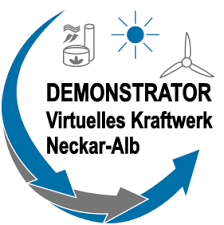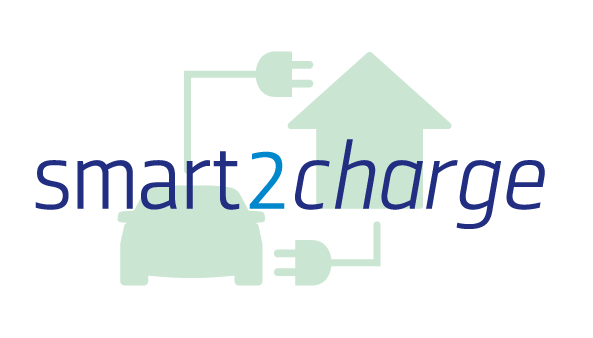Innovation
To ensure we remain at the cutting edge of technology, enisyst participates in a range of forward-looking national and European research projects.
Participating in these projects is vital to maintaining our high degree of innovation and the continuous optimisation of our system. They present valuable opportunities to expand our own know-how and test current innovations while inspiring others.
To our team, the topics of electromobility and smart cities and neighbourhoods are especially important future challenges that we as pioneers wish to overcome.
Current project involvement:
Control and dimming via the smart meter infrastructure
“UtiliSpaces” project launched in Freiburg
Heat pumps and charging points should be able to be dimmed to ensure reliable operation of the distribution grids in critical grid situations. The communication intended for this runs via the so-called CLS channel of the smart meter gateway. The UtiliSpaces project has now been launched at Fraunhofer ISE in Freiburg, which aims to research the existing challenges of implementation in this complex environment in practice. The project is funded by the Federal Ministry of Education and Research with 2 million euros and coordinated by Fraunhofer IEE.
For the energy transition to succeed, it must also be possible to adapt consumption to generation in the future. In critical grid situations, grid operators will therefore have a control option for systems such as heat pumps or wallboxes, which came into force this year with §14a of the Energy Industry Act. The participants at the kick-off therefore agreed that the specific IT implementation of the regulations for dimming controllable consumer devices such as heat pumps or wallboxes in accordance with Section 14a of the Energy Industry Act should be given top priority in the project.
“In the project, we are working out what still needs to be done to ensure that the entire process chain works reliably together,” says Volker Berkhout, project coordinator at Fraunhofer IEE. “We are testing different combinations of hardware and software solutions as well as organizational constellations, for example for basic or competitive metering point operation.
In the first stage, a comprehensive laboratory environment will be set up in the Fraunhofer ISE Digital Grid Lab to test various use cases for system control. A test stand with smart meter gateways, control boxes and submeters from various manufacturers will be set up for this purpose. The project partners will each contribute their CLS management systems and provide access options as active external market participants (aEMT). The controllable consumers such as charging stations are integrated partly as real systems and partly as digital twins via the powerful Power Hardware-in-the-Loop system. “The variety of devices and the flexibility of being able to take on different operator roles in the project open up the opportunity to extensively test regulatory requirements and associated processes. All network operators in Germany are currently facing these challenges. We are working on a core task for future grid operation,” explains Marco Mittelsdorf, responsible for laboratory testing at Fraunhofer ISE.
Fraunhofer IEE will also set up a virtual lab environment to test scaling issues. This virtual lab is based on a Kubernetes cluster as the IT infrastructure and will simulate the processes with a large number of emulated smart meter gateways and flexible energy systems. Following the laboratory trials, tests are planned for field installations at all project partners.
Other issues being addressed in the project concern the practical handling of systems during switching operations by grid operators or energy service providers that are managed by competitive metering point operators. Additional uses of the CLS channel for submetering are also to be demonstrated and further developed in the project. Cross-company usage concepts will then also be developed for the collected data and data room technologies will be tested.
Background:
With the introduction of new market roles (metering point operator (MSB), energy service provider (ESA)) and functions (gateway administrator (GWA)), new players and processes are finding their way into metering point operation. In particular, the use of the Controllable Local System (CLS) (proxy) channel of the Smart Meter Gateway (SMGW) enables these players to use a wide range of market and grid-supporting applications, which in turn require new functions and processes in the underlying IT systems.
Participants:
Energienetze Mittelrhein GmbH & Co.KG (enm): Solutions for their roles as distribution grid and metering point operators
MVV Energie AG: Smart City solutions via the MVV data platform, which will not only act as a data hub for energy data from different metering systems as part of the project, but also as an active market participant.
ZennerConnect GmbH: Platform for external market participants as a system for CLS management
enisyst GmbH: Energy service provider
Fraunhofer IEE: Overall project management
Fraunhofer ISE: Head of laboratory testing

Funding:
The research project with a funding amount of around 2 million euros is funded under the funding code 03EI6096C within the 7th Energy Research Program of the Federal Ministry of Education and Research.
Energy renovation kits for residential buildings
Launch of the new research project “sEnSys
As part of the “sEnSys” project, Enisyst is researching ways to carry out energy refurbishment in existing buildings in an energy-efficient and economical way. The means of choice is an intelligent control system that optimally coordinates the electrical and thermal storage units as well as the charging stations for the e-car and communicates with the higher-level energy management system.
A climate-neutral building standard is necessary for achieving the climate protection goals in the building sector for new buildings as well as for existing buildings. In terms of energy and construction, the realisation of energy-neutral buildings is already possible in many cases. However, characteristics such as uncoordinated individual components, the lack of an overarching control strategy and a lack of knowledge in system integration often make an economic and functional realisation difficult.
With the “sEnSys” project, a comprehensive concept for energy-efficient, economical and grid-serving buildings is now to be developed and implemented.
For this purpose, a refurbishment in the existing building stock is being carried out using the example of a multi-storey apartment building in the cooperative housing sector.
In the research network, the Technical University of Nuremberg, enisyst GmbH, GEWOBAU Erlangen and GPE GmbH are jointly developing the solution approaches for the model refurbishment of the multi-storey apartment building, which is located in the housing stock of GEWOBAU in Erlangen. The project is funded by the Federal Ministry of Economics and Climate Protection from June 2022 to May 2025 and is listed under the funding code 03EN1053A.
The implementation of energy-efficient, intelligent building technology is to succeed with the help of renewable energies and a PV system with optimised self-use. The goal is to achieve the status of a very low-energy building.
In the project, an intelligent control system is to be developed that optimally coordinates the electrical and thermal storage units as well as the charging stations for the e-car and negotiates the time requirements with the higher-level energy management system.
To achieve economic operation, operator models for electricity and heat concepts will be investigated and implemented. The additional costs for the expense of components and control functions are to be compensated for by increased system efficiency and thus lower energy consumption costs, the elimination of external consumption billing and the full exploitation of the possibilities of tenant electricity.
Acceptance of the energy refurbishment can only be achieved if the occupants benefit from the economic and technical interaction. The system control therefore includes building-wide energy and load management, which includes user integration. A user interface is to visualise measured values and enable control interventions by the user.
Participants of the research project:
Technische Hochschule Nürnberg
enisyst GmbH
GEWOBAU Erlangen
GPE GmbH
Funding:
The project is funded by the Federal Ministry of Economics and Climate Protection from June 2022 to May 2025 and is listed under the funding code 03EN1053A.

Research project aims to use rainwater to supply a neighbourhood with heating and cooling
Rain2energy” project launched in Bamberg
The recently launched research project deals with the sustainable supply of the city quarter “ecoSquare” in Bamberg. The innovative energy concept envisages a regenerative thermal supply via a complex cold local heating network with heat pumps. As part of the project, Enisyst is to develop a synergetically optimised overall concept from this.
Two rainwater cisterns with a total volume of approx. 130 m³ are to heat and cool the ecoSquare quarter, which is currently under construction, via a cold local heating ring. In order to exploit the potential, an AI-based predictive control technology is being developed that enables intelligent storage management with weather forecasts, heating and cooling load profiles and the rainwater utilisation profile. A further goal of the control strategy is a rainwater balance without runoff into the canal and the use of rainwater to irrigate the green spaces.
In the project, Enisyst is dealing with the control engineering challenge of combining the energy utilisation goals and those of rainwater management in a synergetically optimised overall concept.
In addition, the project is investigating questions regarding the treatment of rainwater and the changed biodiversity, as well as analysing building permit processes. After completion of construction, monitoring and operational optimisation will follow.
Participants of the research project:
Bayerisches Zentrum für Angewandte Energieforschung e. V. (Projektleitung), Technische Universität Dresden, Technische Universität München, Hochschule Weihenstephan-Triesdorf, eco AG, ecoSquare Regnitztal GmbH & Co. KG, enisyst GmbH, Fränkische Rohrwerke, Gebr. Kirchner GmbH & Co. KG, NATURSTROM AG, optigrün internaional AG.

Cold local heating for 400 residential units
Pilot project launched in Bad Nauheim
For the construction of a spa town in Bad Nauheim (Hesse), which will begin 1 May 2020 and supply 400 residential units with cold local heating, enisyst will be responsible for monitoring and control of the town’s heating network (including heat pumps).
“Cold local heating“ is an innovative new form of heat supply gaining popularity across Germany. The name refers to the transport and regenerative supply of heat energy in a pipeline network at a low temperature level, enabling the provision of heat in a climate-friendly, sustainable manner.
Bad Nauheim will be accompanied by a pilot project for a new grid-based heating and cooling supply with decentralised heat pumps. A two-layer large collector (22,000 m² collector surface) and 6 km long cold local heating network (KNW) will supply cold local heating to about 400 residential units.
The research project, “KNW-Opt”, will scientifically accompany and analyse the implemented system to obtain reliable key data on energy performance and economic efficiency. In this way, the project shall contribute to the demonstration and dissemination of this innovative system solution.
Due to Hesse’s large number of distributed heat pumps and photovoltaic systems, intelligent sector coupling between electricity and heat supply plays a central role.
On the one hand, the heat pumps should be operated in a way that maximises use of PV-generated electricity within the neighbourhood itself, and minimises electricity load peaks. On the other hand, it should be possible for SmartGrid connectivity to provide optimal flexibility of neighbourhood heat pump operation.
In the project, enisyst is responsible for the detailed monitoring and control the heating grid and its distributed heat pumps. Using cloud-based control technology, enisyst also provides project partners with an operations management and data exchange platform. Together with these partners, enisyst is developing interfaces for power grid-optimised control of the distributed systems.
Duration: 4 years
Supported by: Bundesministerium für Wirtschaft und Energie (BMWi)
Info:
Cold local heating networks can be operated at a low temperature level. Heat is generated using the constant ground temperature of 10°C, which prevails at certain ground depths throughout the year.
Geothermal heat is extracted with the help of collectors sunk 1.5 and 3 metres deep, then distributed to residential properties via underground pipes. Inside, heat pumps raise the temperature for heating and hot water – with no losses in heat compared to traditional district heating.

Smart2Charge Research Project
Electric mobility for rural areas
How can electric vehicle charging infrastructure in rural areas be set up in a future-facing manner and integrated into the existing electricity grid? This was the question posed for scientific analysis by Smart2Charge, the joint research project by enisyst and HFT Stuttgart in the municipality of Wüstenrot.
Wüstenrot had already begun its path to becoming a plus-energy municipality. Now, as it seeks to consistently develop its energy efficiency, the municipality wishes to make rapid progress in the expansion of electric mobility. Our goal is to adopt a pioneering role in this charging infrastructure development.
Challenges of rapidly increasing electrification of individual transport:
- Development of charging infrastructure
- Integration into existing power grid
Smart2Charge addresses vital questions such as:
- Which measures are economically feasible in rural communities?
- How can e-charging stations be operated long-term at a high frequency and with acceptance by the population?
The citizens of Wüstenrot have a range of opportunities to become more involved in the advancement of their locale e.g. monitoring charging processes via app and flexibly registering needs.
New opportunities for municipalities:
- Integration of charging infrastructure into building, neighbourhood and communal energy control technologies, as well as into grid control technology that governs municipal utilities.
- Increased energy system efficiency via intelligent networking of storage capacities of vehicles and additional local electricity storage systems.
Basis:
Intelligent IT infrastructure for predictive dis/charging process control, featuring bidirectional use of vehicle batteries and their networking with energy management systems at building and area power grid level.
In cooperation with Mitsubishi, an interface to the manufacturer’s existing energy management system is being developed and implemented. Our team welcomes the following partners to the project:
The municipality of Wüstenrot, Mitsubishi Motors Deutschland Automobile GmbH, HFT Stuttgart, Oxygen Technologies GmbH, and Castellan AG. The association, Elektromobilität Heilbronn-Franken is also involved as an associated partner.
Duration: December 2019 to November 2022
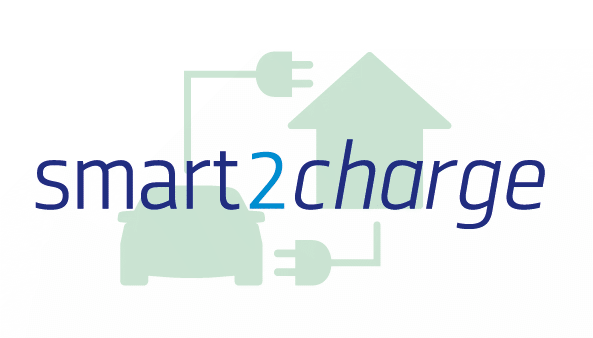

REWARDHeat research project
As part of H2020 REWARDHeat, the European project that began in October 2019, innovative low-temperature district heating networks will be installed in eight European cities over the next four years by 28 project partners.
Due to their low temperature level, energy sources with lower temperatures can also be fed into envisaged district heating networks (from 10-60°C), significantly increasing the number of usable energy sources.
As a result, previously unusable waste heat sources can also be efficiently integrated e.g. from cooling processes or waste water pipes. Thus, these innovative district heating systems offer cost-effective routes to significantly reducing CO2 emissions and rendering waste heat usable.
The experts involved in this project are working not only on the details of technical implementation but also developing business models for energy suppliers adapting to this new technology.
Within the project, enisyst is developing a cost-efficient intelligent control system for the decentralised feeding of waste heat into heating grids. To provide initial examples of this control system in action, it will be integrated into two of the planned demonstration networks.
Further information can be found here:
Website RewardHeat
Video #REWARDHeat

This project has received funding from the European Union’s Horizon 2020 research and innovation programme under grant agreement No. 857811.

NEQModPlus research project
Development of low-energy neighbourhoods
NEQModPlus is funded by BMWi as part of the 6th Energy Research Programme in the ‘Energy Efficient City’ research area. The project name is an abbreviated version of ‘Development of Methodological Approaches, Modelling Tools and Implementation Models (Mod) for Lowest Energy Neighbourhoods (NEQ)’.
The objective of this research project is to further develop processes and instruments to support the planning, decision-making and implementation processes of ultra-low-energy neighbourhoods or energy-neutral neighbourhoods – in refurbishment, existing buildings and new concepts (with special consideration of buildings and transport).
The project will produce a consistent, easy-to-use methodology for stakeholders, as well as further develop existing tools for the step-by-step development, implementation and efficient operation of ultra-low-energy neighbourhoods in accordance with objectives.
enisyst is the project partner responsible for the development and implementation of intelligent neighbourhood management concepts for the efficient operation of distributed energy systems.
Client: German Federal Ministry for Economic Affairs and Energy (BMWi).
Duration: Dec. 2018 to Nov. 2021


LIFE4HeatRecovery research project
Traditional third generation heat networks distribute energy at a high temperature level to individual customers from a heat generation plant – whereas fourth generation heat networks integrate waste heat from multiple hot heat sources (some renewable).
LIFE4HeatRecovery goes one step further, developing a new generation of smart district heating networks that can efficiently integrate a large number of low temperature heat sources (10-40°C) available to the urban area.

The Life4HeatRecovery project has received funding from the EU’s LIFE programme under the contract number LIFE17 CCM/IT/000085.
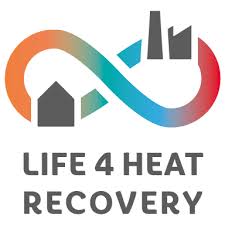
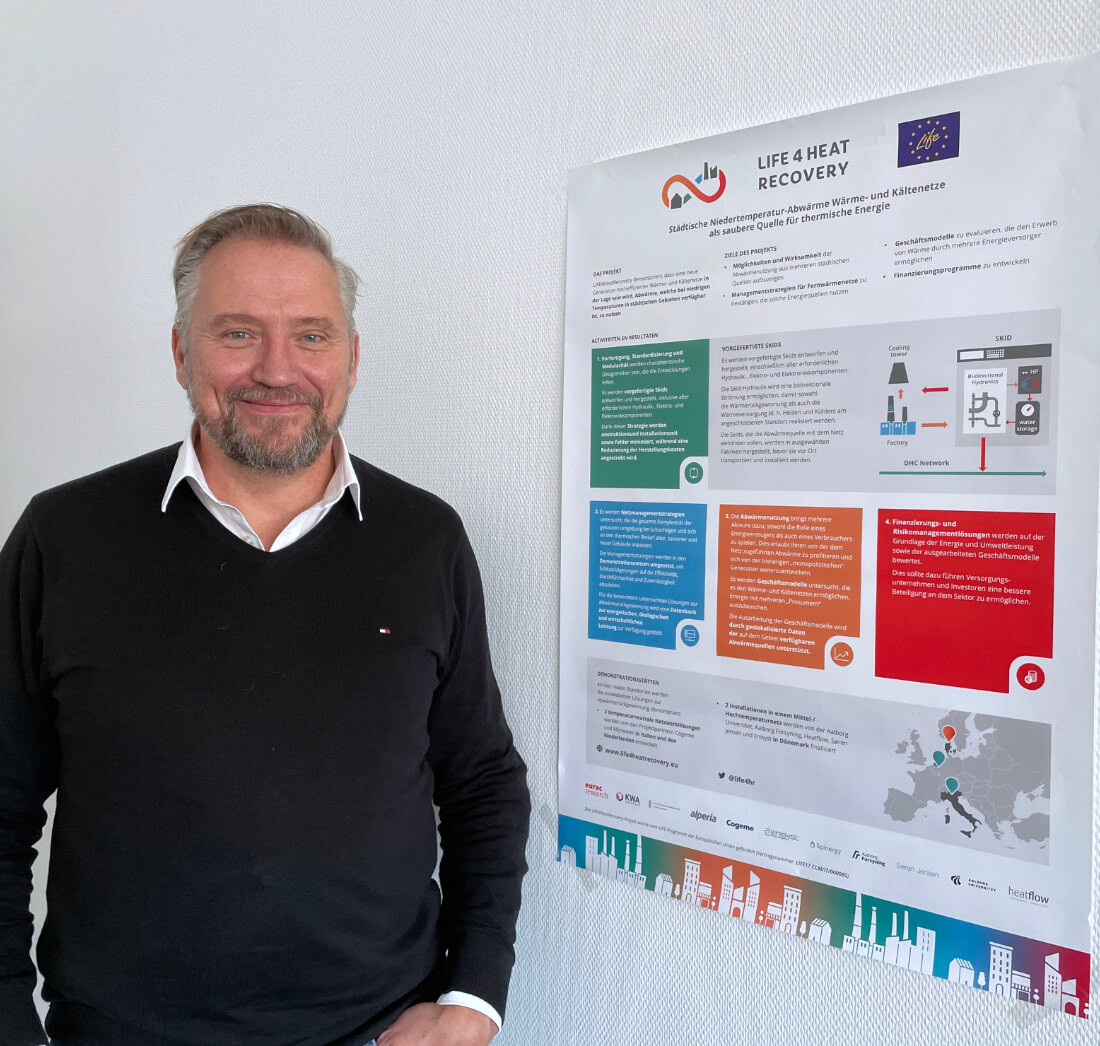
Flexynets Research Project

Flexynets research project
This EU Horizon 2020 project focuses on the development of innovative LowEx heating and cooling networks, their interaction with distributed generators and consumers, and intelligent connection to the gas and electricity grid. enisyst leads the project in its development of innovative control solutions.
Our team is responsible for future-proofing heat grid concepts and control of a laboratory-scale heat grid pilot system situated in EURAC, Bolzano.
In this laboratory system, a gas boiler and concentrating solar collectors provide heat for an ORC plant and absorption chiller, which feed into the cold heat grid as producers at different points.
Consumers and prosumers can also be connected to the grid at different points, with two reversible heat pumps representing these demographics.
More information at www.flexynets.eu

SIM4Blocks research project
This EU Horizon 2020 project features the investigation into and real project implementation and testing of possibilities for reducing electricity grid loads at an urban level.
Reduction is achieved via intelligent consumption adjustment and distributed demand side management.
In this project, enisyst leads the work package for implementing control solutions in pilot projects spread across Switzerland, Spain and Germany. For the German pilot project, which features a range of test applications, enisyst develops and implements the necessary control technology.
More information (including a project video) can be found at www.sim4blocks.eu.com


This project has received funding from the EU’s Horizon 2020 research and innovation programme under grant agreement No. 695965.
Neckar-Alb Virtual Power Plant Project
In this project, enisyst stands as a main development partner. Our team is providing the necessary intelligent control system to a Reutlingen University-based, local area network demonstration model.
In this test facility, a CHP unit, PV system, thermal chiller, heat pumps, electricity storage units and e-charging columns work intelligently together via predictive load and storage management.
enisyst is responsible for the system’s local intelligence, and developing and installing the demonstration model’s necessary control units.
More info at www.virtuelles-kraftwerk-neckar-alb.de
